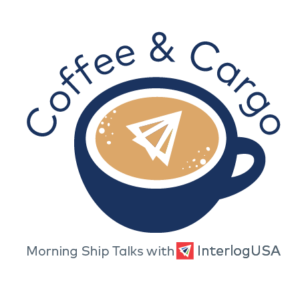Competitive Edge
Headlines
- Last Thursday (7/22), history was made. More than 3,500 tons of fresh lemons from Argentina arrived at the Port of Philadelphia. This 3,300 pallet move of lemons from Argentina marks the first ever to enter the U.S. under a new agreement between the U.S. Department of Agriculture and the National Service for Agrifood Health and Quality (Senasa).
- Heatwaves in Europe have caused water levels to lower on key inland shipping lanes through the continent. In particular, the Rhine River is experiencing a dry year, and, with low water levels, river barges will have to travel with reduced freight or, in a worst case, cease operating altogether.
Courtesy: American Journal of Transportation; Transport Topics; Supply Chain Brain
UPDATE: U.S./Canada Ports – Number of Vessels at Anchor as of 07-26-22
- Savannah: 43 Vessels at Anchor (+3)
- Houston: 35 Vessels at Anchor (+3)
- Vancouver: 27 Vessels at Anchor (0)
- New York/Newark: 20 Vessels at Anchor (+3)
- San Francisco/Oakland: 15 Vessels at Anchor (+7)
- Los Angeles/Long Beach: 6 Vessels at Anchor (-8)
- Charleston: 4 Vessels at Anchor (+3)
Note: This count does not include vessels moored and being unloaded at port docks. Colored numbers in parentheses represents the change from last week over.
Courtesy: MarineTraffic
IMPORT: Asia to North America (TPEB)
Recent Developments:
- Contract negotiations between the International Longshore and Warehouse Union (ILWU) and Pacific Maritime Association (PMA) remain active. The existing labor contract between the two parties expired July 1.
- Both the ILWU and PMA have commented neither is planning on striking or shutting down operations amid ongoing talks. The two parties state their confidence that there will be no disruptions at USWC ports.
- Sources close to the talks speculate a deal will be reached by August or September. However, there has been no official comment or release from either party that confirms this is true.
Rates: Spot rates from Asia to the US East Coast are at their lowest level of 2022, reports indicate.
- Although rates are softened, forecasts remain in play for a boom in import activity. In such an event, shippers can expect increases to rates.
Transpacific carriers have announced GRIs, effective August 1, affecting all Canadian and U.S. destinations from Asian (including Indian sub-continent) origins.
Space: Space is generally open for now, but any surges in demand and volumes will tighten space.
Capacity: Capacity has tightened in pockets. A certain trend of shippers shifting to the USEC has developed due to uncertainty around West Coast (ILWU and PMA) labor talks and fears of related disruptions at West Coast ports.
Equipment: Intermodal systems remain stressed with congestion and truck and chassis deficits.
TIPS: Book at least 2-3 weeks prior to ready date. Strongly consider premium services and, if cargo is ready now, make plans to move as soon as possible with the current openings in space and fallen rates. When possible, shippers with fixed-rate contacts should take advantage of these softened rates on the floating market.
IMPORT: Europe to North America (TAWB)
Recent Developments:
- Northern European hubs, primarily German and Netherland ports, remain critically congested due to labor slowdowns and strikes.
- USWC ports have seen alleviated congestion and improvements to vessel waiting times. There are no considerable disruptions directly related to ongoing WC labor talks.
- On the USEC, both ports of New York/Newark and Savannah have substantial numbers of anchored vessels offshore.
- Higher conversions to air freight among American importers as challenges continue for ocean freight.
Rates: Rates remain elevated, but consistent, for the foreseeable future. Higher fuel costs are contributing to rate increases.
Space: Space remains critical for USEC and USWC. However, there have been glimpses of improvements on both ends heading into August.
Capacity: Capacity for both North Europe and Mediterranean services remain gripped.
Equipment: Equipment at European seaports is not as readily available as it has been for the past few months. Inland terminals in Europe are also still reporting equipment shortages. On the U.S. side, truck and chassis availability remain concerning, especially with the latter.
TIPS: Book 5 or more weeks prior to ready date. Shippers are strongly advised to use premium service for no-roll options and improved reliability for their cargo.
EXPORT: North America to Asia
Recent Developments:
- Protesters of California’s controversial AB5 are no longer blockading terminal gates at the Port of Oakland. One of the country’s largest export gateways says it’ll take at least three days to catch up on the congestion the protests caused last week as containers were not able to be moved. See below in our Freight News section for more details.
- For the USEC, waiting vessels remain an issue for Savannah and New York/Newark.
- Diminished schedule integrity continues to challenge post earliest return dates.
- Vessel arrivals remain smooth for USWC POLs.
Rates: Limited GRIs remain in play for the rest of July.
Capacity: Available capacity remains fluid for USWC POLs.
Equipment: Truck, container, and chassis availability remains dire and has significantly contributed to congestion of the intermodal system and IPI origins. Standard equipment at ports remains available unless carriers advise otherwise.
- Some carriers have noted rail operations from Chicago to USWC ports have become more fluid and can handle an uptick in volume.
TIPS: Book 4 to 5 weeks prior to time of departure to secure necessary equipment and vessel space.
Did You Know: Port of Oakland is fully operational after last week’s protests
It will take about three days for the Port to recover and clear out the import containers that built up from last week. As well as receive all the export loads that couldn’t be delivered to the vessels.
If truckers do want to still protest, the Port has designated free-speech zones, that they put together on Friday.
Source: Journal of Commerce
Freight News
The Port of New York-New Jersey is still struggling to process cargo
Even with extended gate hours on Saturdays, the Port has still been dealing with some struggles when processing cargo. Additionally, required appointments at the two marine terminals at NY-NJ, have added more frustration for truckers at the port who are trying to get rid of the empty containers that have been sitting there, the Journal of Commerce reports. The Port Director, Beth Rooney has said that less than 4% of cargo is moved on Saturdays each week, “it’s crickets, we can’t continue to handle a 30% increase in cargo in the same hours of operation,” Transport Topics reports.
Required Appointments adding another level of frustration
At the end of June, only two terminals at the port require appointments. The Elizabeth terminal requires appointments all day while the Global Container Terminal facility only require appointments up till 1pm. Now, some motor carriers in New Jersey are starting to charge shippers a fee for booking appointments at the marine terminals. The reason for the fee is to “offset the added expense and manpower that has become necessary to effectively secure and manage appointments at the terminal that require them,” reports say. Additionally, as of July 11th, truckers need to provide a container number one hour before an appointment, otherwise it will get canceled. This addition was made to prevent motor carriers from grabbing any available appointment but failing to show, the JOC says.
Georgia and South Carolina ports are asking ocean carriers to stop port skipping calls
As of Tuesday, there were about 43 vessels at anchor at the port of Savannah, with some reports saying this is partly driven by ocean carriers seeking to skip the earlier congestion at the Port of Charleston – the Journal of Commerce says.
Officials at Savannah and Charleston say that when a carrier changes a port call and unexpectedly discharges containers in the other’s port, it causes multi-hour truck drays that take drivers away from local deliveries.
Now, the Georgia Port Authority has announced an extension of truck hours amid growing vessel backlogs. Truck gates will run from 4am to 9pm during the week for a total of 17 hours per day, the JOC says. Right now, the shift is a total of 16 hours.
The Georgia Port Authority says they are doing everything they can, but it does take time for adjustments to feel fruition. Continuing to say they don’t expect volumes to dip in the next 5-6 weeks either.
Watch last week's webinar:

Make sure you watch last week’s webinar, where we had Andrew Danas, a Partner at Grove, Jaskiewicz and Cobert, LLP on to discuss volume commitments, rate volatility, and demurrage/detention costs, with our experts!
Sign up for our
industry answers
Our team works to provide valuable, unique, and relevant content to assist you in finding solutions. Sign up now.


